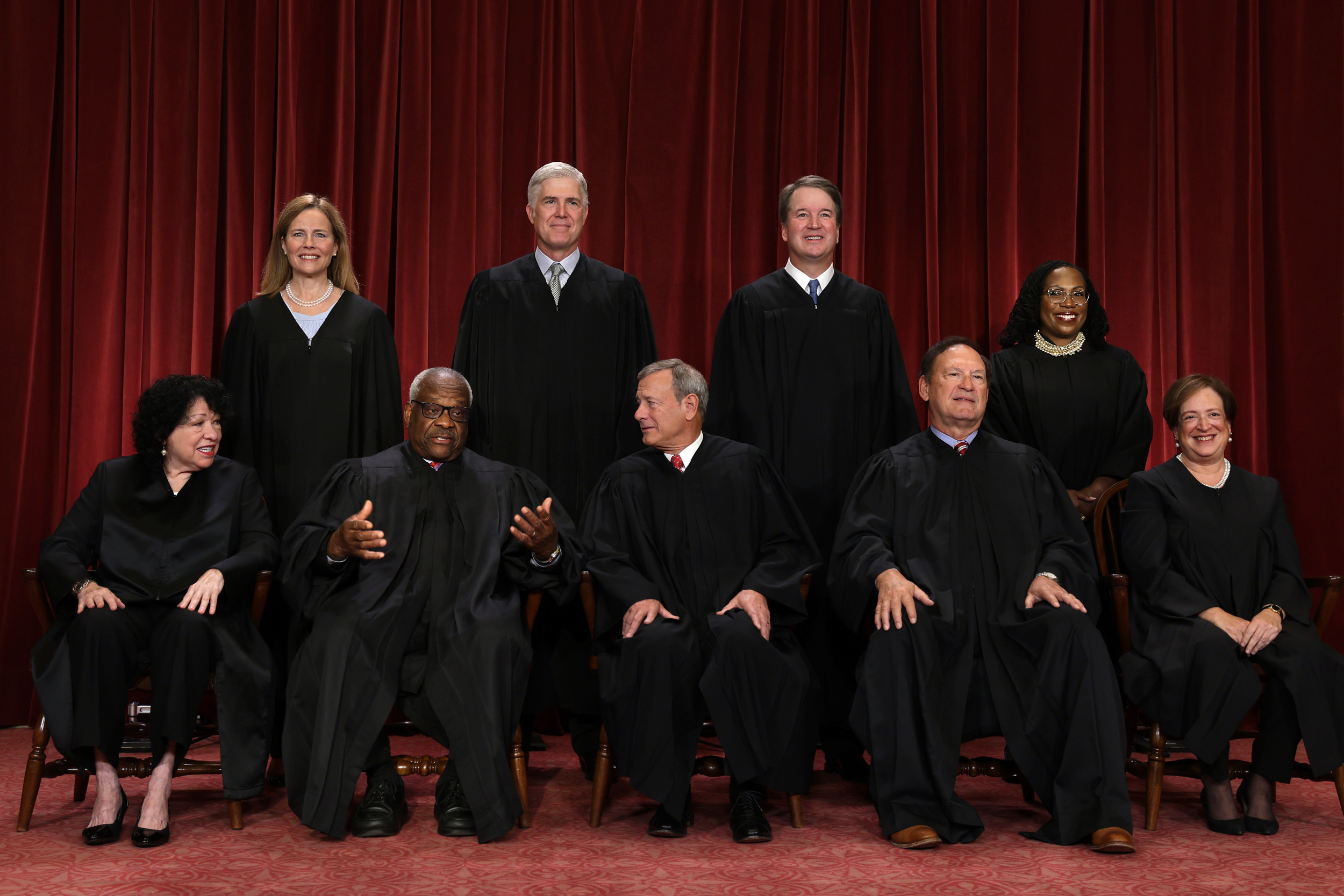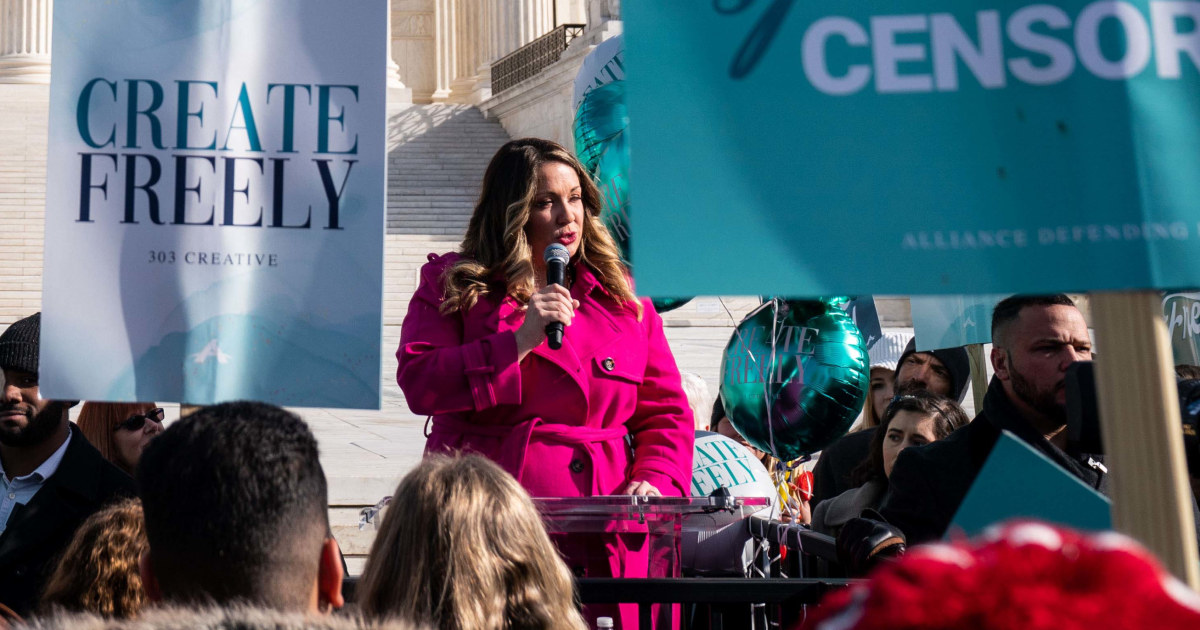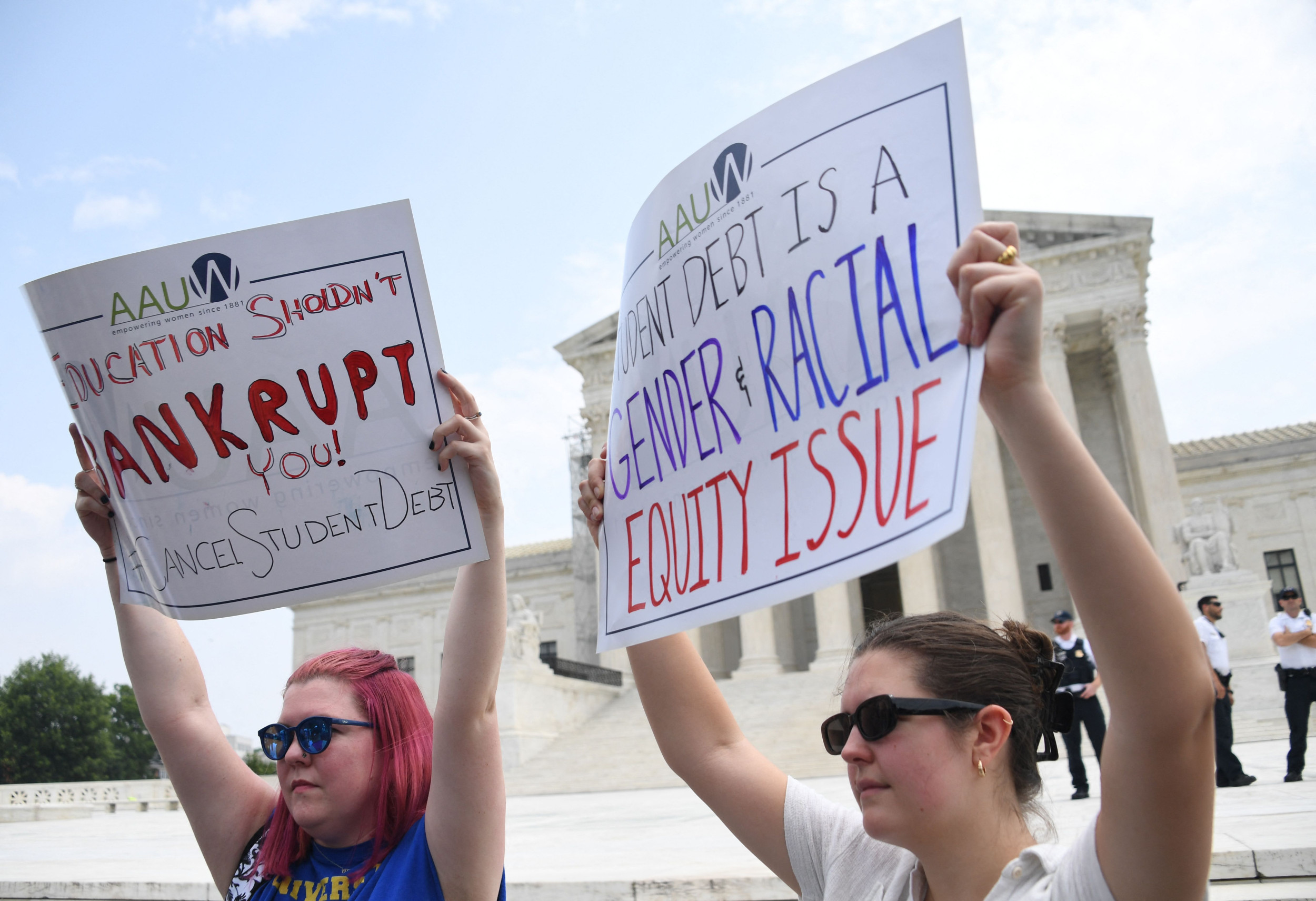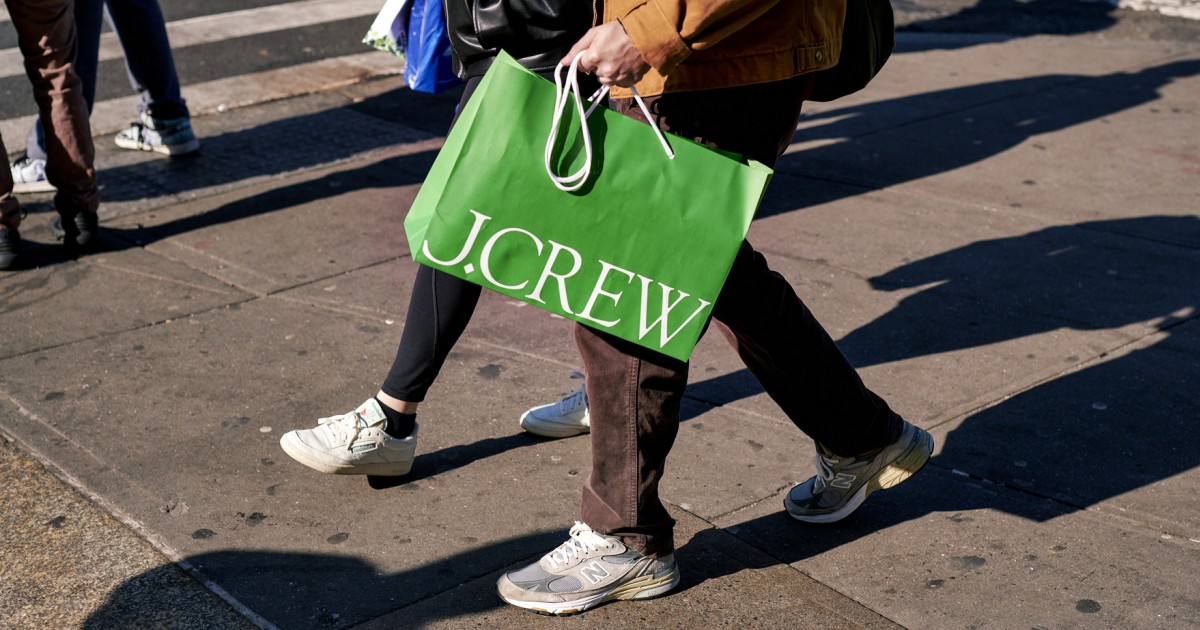The Supreme Court docket’s recent ruling in favor of an evangelical Christian world wide web designer who refused to work on same-intercourse weddings did not hinge on what now appears to have been a request from a faux buyer, lawful experts informed NBC Information on Monday.
In a circumstance that wound up dealing a setback to LGBTQ legal rights, the concentrate on the possible shopper 1st arose right after web designer Lorie Smith said in a past court docket submitting that somebody named Stewart experienced arrived at out to her in 2016 about putting alongside one another a web-site for his marriage to a particular person named Mike.
That narrative was thrown into query final 7 days immediately after The New Republic revealed an write-up on Stewart, who denied ever achieving out to Smith, and quoted him expressing he was a world-wide-web designer who has been married to a woman for several years.
“I would not want any individual to … make me a marriage internet site?” the man determined only as Stewart explained to the magazine. “I’m married, I have a child—I’m not genuinely positive wherever that came from? But somebody’s employing phony information and facts in a Supreme Courtroom submitting document,” he claimed.
The revelation has led to grievances on social media that the scenario need to under no circumstances have made it as considerably as the Supreme Court, with many arguing that Smith did not have legal standing to deliver the scenario if there were not any shoppers in search of her services.
Legal authorities arrived at by NBC Information disagreed.
“Though I imagine the [Supreme Court] opinion is misguided in several ways, I do imagine she has standing,” stated Carolyn Shapiro, a professor at Chicago-Kent Higher education of Regulation. She famous that Smith had sought what is recognised as a pre-enforcement obstacle, with Smith arguing that her ideal to no cost speech was getting chilled by a Colorado state regulation.
“She’s indicating I want to do anything that’s unquestionably towards the law in Colorado. I consider that’s possibly ample for a pre-enforcement problem,” Shapiro explained.
Smith filed fit in 2016 saying she desired to style wedding day web-sites, but was worried that the the Colorado Anti-Discrimination Act would power her to have to place jointly internet sites for same-sexual intercourse weddings as effectively. She explained she desired to put up a assertion on her web page creating obvious her opposition to executing so.
Jonathan Miller, an attorney and chief system officer at the General public Legal rights Undertaking, a civil legal rights legal team, mentioned “pre-enforcement evaluate is commonly excellent” and “needed to make sure unconstitutional laws do not go into impact.” He questioned its use in this circumstance, on the other hand, given that the regulation in dilemma experienced been in result for a long time.
Miller stated the inclusion of the seemingly phony inquiry in the court docket record exhibits “there are significant thoughts about the specifics and file in this scenario.” The attorneys in the circumstance really should not have allowed “an unverified account to be part of the document,” Miller stated.
Jonathan Scruggs, senior counsel for the Alliance Defending Liberty, the group that introduced Smith’s lawsuit, explained, “Lorie experienced no rationale to believe the e-mail was a faux,” and that she’d under no circumstances responded to it for dread of triggering the Colorado regulation.
“She didn’t reach out since that would violate the law by itself,” Scruggs mentioned.
Smith also had an benefit in the case, Shapiro and Miller said: Then-Colorado Attorney Common Cynthia Coffman, a Republican, experienced signed off on a generous “Joint Statement of Stipulated Facts” in the scenario that laid out quite a few positions about her beliefs.
“I really don’t think it was fantastic strategic litigation to indicator off on all those people stipulations,” Shapiro claimed.
Composing for the conservative majority in the 6-3 ruling, Justice Neil Gorsuch cited the stipulations as demonstrating “the wedding day sites Ms. Smith seeks to develop qualify as pure speech secured by the Very first Amendment.”
Ed Whelan, a conservative legal professional who’s supportive of the court’s choice, said what Smith was searching for was “standard Initial Amendment pre-enforcement relief,” and that the Colorado legislation she was challenging experienced her experience she was “stuck in between a rock and a hard spot.”
Whelan, who clerked for the late-Justice Antonin Scalia and is now a distinguished senior fellow at The Ethics and Public Coverage Middle, said he failed to feel the “sham” client was a pertinent issue in the court’s determination considering the fact that it isn’t really even talked about in the bulk opinion or the dissent. He also noted the disputed electronic mail was despatched to Smith the day immediately after her complaint was filed and described on in the media.
“This entire insinuation will make no feeling at all,” Whelan explained, including that it was additional probably a prank on Smith than an work on her behalf to deceive the court docket.
Smith’s lawyers experienced applied the email to check out to bolster her situation in court filings, but to no avail.
The federal judge who in the beginning ruled on the scenario, Marcia S. Krieger, brushed off the relevance of the electronic mail in her final decision, noting, “it is not obvious that Stewart and Mike are a very same-intercourse couple (as these names can be utilised by members of both equally sexes).”
Krieger uncovered Smith experienced standing to sue no matter, but dominated versus her promises. Smith appealed to the 10th U.S. Circuit Courtroom of Appeals, which also observed she had standing but turned down her lawful challenge.
The appeals court docket found Smith and her organization experienced “sufficiently demonstrated the two an intent to give graphic and net design products and services to the public in a fashion that exposes them to [Colorado Anti-Discrimination Act] liability, and a credible danger that Colorado will prosecute them beneath that statute.”
In his majority feeling, Gorsuch cited the appeals court’s locating on standing, and wrote, “no get together problems these conclusions.”
He also identified that Smith “had recognized a credible threat that, if she follows by way of on her options to provide wedding ceremony site expert services, Colorado will invoke CADA to force her to develop speech she does not think or endorse.”
In a sharply worded 38-page dissent, Justice Sonia Sotomayor called the ruling “heartbreaking” and stated it was component of “a backlash to the motion for liberty and equality for gender and sexual minorities” and a kind of “reactionary exclusion.”
1 matter Sotomayor did not point out, Whelan observed, was any issues about Smith’s legal standing to provide the situation in the 1st put.
“Just about every justice agreed,” he reported.










